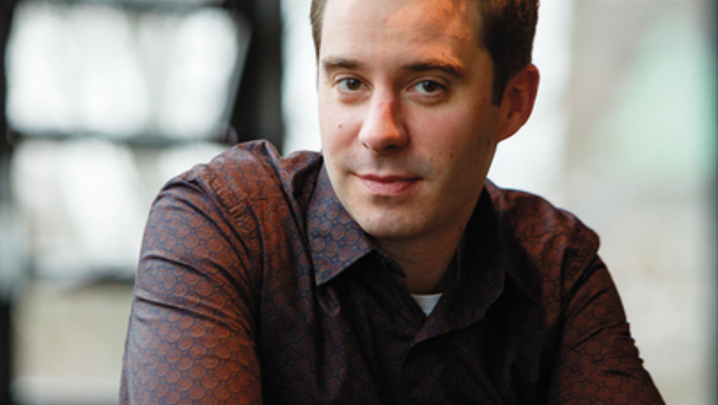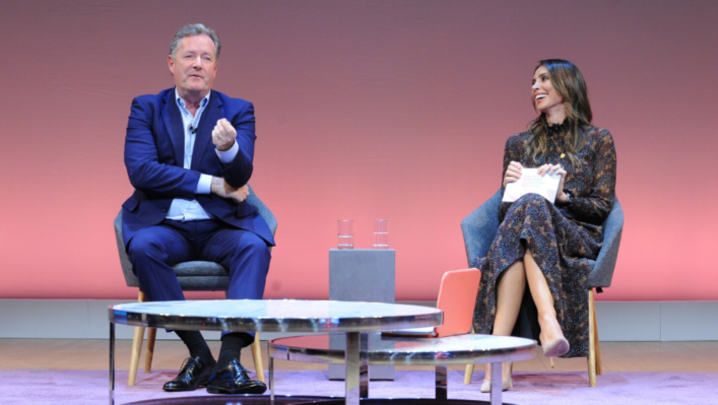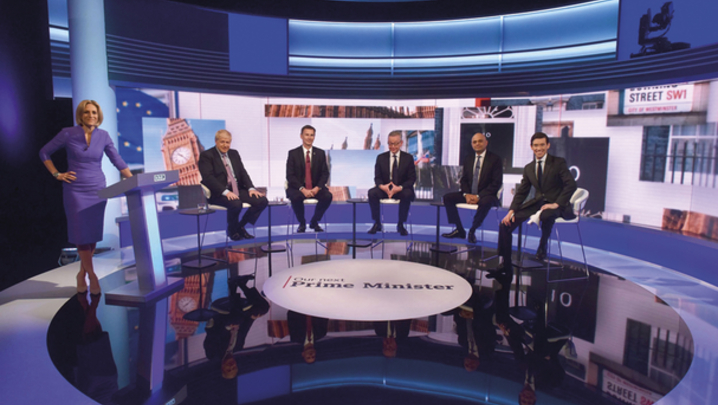Alastair Stewart looks back at some of the top stories of 2016, as sanity and normality were hijacked by social media
Zika
The first big story of the year was the Zika virus. It yielded moving pictures of troubled mothers and their babies, with malformed brains. It prompted near pandemonium, however, when speculation spread that it might disrupt the Olympic Games.
There was also the continuing Ebola virus outbreak which had, in 2014, seen British servicemen and women come to the aid of folk in faraway places. That included the building of hospitals, which were staffed by brave medics, many taking time out from the NHS.
Evidence of how bizarre 2016 has been came when one of the Ebola nurses, who’d contracted the virus and nearly died, was called before a tribunal for malpractice.
Pauline Cafferkey was eventually cleared but a colleague was suspended for misreading Cafferkey’s temperature.
TV v social media
Throughout the year, TV did powerful work. We offered compelling pictures and, as with radio, thoughtful words and intelligent analysis. Social media, in parallel, gave a minute-by-minute running commentary and pointed folk at good and less good sources.
Plus ça change.
The Panama Papers
That it was going to be a “full-moon” of a year become clear in April, with the leaking of the “Panama papers” by the International Consortium of Investigative Journalists and the German newspaper Süddeutsche Zeitung.
With a little help from an insider at Mossack Fonseca, the dubious financial practices of the usual suspects were revealed in eye-watering quantities, both in terms of papers leaked and the amounts of money involved.
The dark arts of journalism fruitfully plunged a probe into the dark depths of political and commercial depravity.
Social media risked more by “calling out” some of the less usual suspects, an act that traditional rules and the courts hampered others from doing.
Then it hit the fan, big time.
Post-truth politics
Towards the end of the year, Oxford Dictionaries declared “post-truth” the word of the year. New media, now about as new as the internal combustion engine, tweeted “hurrah”; traditionalists said “lie” was shorter.
In the campaigns leading up to the Brexit vote in June and Donald Trump’s election as US President in November, empirical evidence was thick on the ground.
Running up to the vote on the UK’s membership of the EU, there were warnings of an economic apocalypse if we did not “remain” and financial falsehoods, festooned on the side of a bus, of fabulous riches awaiting us if we “left.” In truth, neither was true.
We filmed the bus, we covered the speeches, we interviewed the players and we sought to test these “post-truth” truths. The doubts were there and they were voiced – but the battle was bloodier on social media and the doubts were screamed rather than objectively crafted.
We also reported the polls that consistently assured us the electorate had decided, just, to “remain.”
They got it wrong, catastrophically. “Post-polling” may shortly join “post-truth.”
Brexit
Brexit heard “experts” anathematised by no less a pillar of the establishment than the former education secretary Michael Gove. Polling went out of the window.
Pollsters’ explanations have been fascinating, numerate, demographic and almost theological. But they got it wrong.
Many will tell you they “knew”; a few will have made a bob or two at Ladbrokes; but most of us fell for it hook, line and “Brexit”.
The PRCA has just launched a “review of political predictions”. My prediction is that self-interest and self-justification among the practitioners of those dark arts and their clients will make it tough to leave Base Camp One.
Corbyn wins Labour leadership
In September, Jeremy Corbyn won his second leadership election, defeating Owen Smith after he’d emerged, above marginally better known opponents, to take up the challenge that the Parliamentary Labour Party and its friends wanted met.
Corbyn won, handsomely. All it really achieved was a strengthening of his grip over a supine PLP, with a rule book that, unless changed, would see him returned as many times as he fancied, until he called it a day.
Corbyn hates door-steps. He and his aides seem to think that seeking a comment in this traditional mode is “harassment” and “unprofessional”.
Social media is an unscientific sample of believers and doubters. Traditional media has sought to report Labour’s comings and goings but the core issue of whether or not Corbyn is the electable Messiah or the doomed psephological albatross around the party’s neck is less easy for us to test, within the traditional rules of impartiality and balance.
So it was doorstep skirmishing that often won screen space, and partisan screaming that one read on social media.
The US Presidential Election
Across the Atlantic, fact-checkers fell screaming to the floor during the Clinton-Trump campaign. Incredible, ridiculous things were said and challenged, only to be repeated.
From the campaign trail, with Trump’s increasingly angry rallies, to the pugilistic debates, it was a TV fest. But it seems that it, too, was all a “post-truth” event.
The polls that tightened when the FBI decided to have another go at Clinton’s emails still said she’d pull it off. She didn’t, despite The Donald’s threats of a wall with Mexico, a ban on Muslims entering the US, the jailing of Clinton and video evidence of the now President-elect’s propensity for grabbing women inappropriately.
Social media crucified Trump and continues to do so. Traditional media is focused on “transition”, on curious photo-opportunities in Trump Tower with the former Ukip leader, Nigel Farage, and Trumpian tweets suggesting that Farage should be Her Majesty’s next ambassador to the US.
After Brexit and Trump
A Shakespearean prologue to 2016 would have suggested a fierce fight over Brexit and the US presidency followed by the restoration of normality and sanity. The reality, played out on TV and on social media, has been more like The Thick of It meets In the Loop, with asides by Chris Morris and music by Stockhausen.
And sitting at the heart of Trump’s White House will be the right-wing, agitprop Breitbart man Steve Bannon as director of strategy. It says it all.
Cathy Newman takes on Milo Yiannopoulos
Cathy Newman’s Channel 4 News clash with Bannon’s Breitbart protégé Milo Yiannopoulos was seminal in understanding where our journalism ends this curious year.
Newman used old-school manners, research and dignity to charge Yiannopoulos over sexism, rape, impoverishment and race.
His answer, essentially, was that Newman just “didn’t get it”. In a curious way, he was right. There is a new cadre out there, despoiling a landscape we once thought we understood; what they soil it with, many find offensive.
But they don’t find it offensive; nor do their many followers at the ballot box; and, on social media, their views are echoed, liked and retweeted.
Considered news-bulletin reports, even lengthy documentary-format expositions, don’t do the trick.
Those judging themselves to be on the side of the gods will watch any calm destruction of the offensive stuff that is offered. But those who agree with the thesis, however offensive it may be to the mainstream, won’t. They just don’t trust us any more – or they’re on social media.
While not all young people rely on instant media, a growing constituency does. What is more, those seeking to join the profession are confronted by the world it has created.
It is a new world for the would-be journalist where the few are blessed with a place on a traditional training programme, via a good journalism course.
More, confronted by the reality of the “gig” economy, end up “jobbing” in an “instant” world, paid or – more often – unpaid, in the jungle of social-media journalism. It will colour their outlook and warp the profession to which they are the heirs and successors.
Mainstream media – MSM – experiments with competition: shout-fest phone-ins; TV studio debates that echo this approach but with a tad more dignity; and reality TV stars, seeking to shed light on the great issues of the day in the way that a Richard Dimbleby or a Brian Walden did decades ago.
But it does it to little effect, in my humble opinion.
What to take away from 2016
The key lesson of 2016 is that the need to find an attractive, credible and engaging approach is still our singular challenge. Social media, kidnapped by ideologues during the referendum and presidential campaigns, won’t really do it.
In this burgeoning domain, veracity is often a rare commodity, while impartiality has the value of a black pearl, and is found just as infrequently.
Yet, these are the media that younger readers and viewers increasingly turn to. Not for them the considered, balanced, sourced view of an accomplished, experienced reporter on TV or radio. Instead, they favour the instant gratification of YouTube, the colourful opinion of the vlog and blog.
And not for them the “sit back and listen” approach of an appointment-to-view bulletin, but rather the spontaneity of a chat room, with bias-confirmation and the apparently ex-cathedra rants that echo their own prejudices.
We traditionalists seek truth, balance and audiences: share matters in the tough world in which we earn our living, in commercial TV and radio and at the BBC.
But where we use “bongs” and “pre-comms” to tempt folk, social media is content to unleash the click-bait approach that embraces the salacious, the inaccurate and the “never wrong for long” to get audiences in, build up the impact-count and cash in on the volumes.
It is the brutality of monetisation, but it is unseemly. A bleak prospect, perhaps, for those of us who still believe in brilliant, unbiased broadcast news funded by commercials and the licence fee.
Oh, by the way, Bob Dylan won the Nobel Prize for Literature and Ed Balls gave a more than reasonable acquittal of himself on Strictly Come Dancing. Or was that the “post-Nobel” and “post-dancing”?
Alastair Stewart OBE is a presenter of ITV News.






